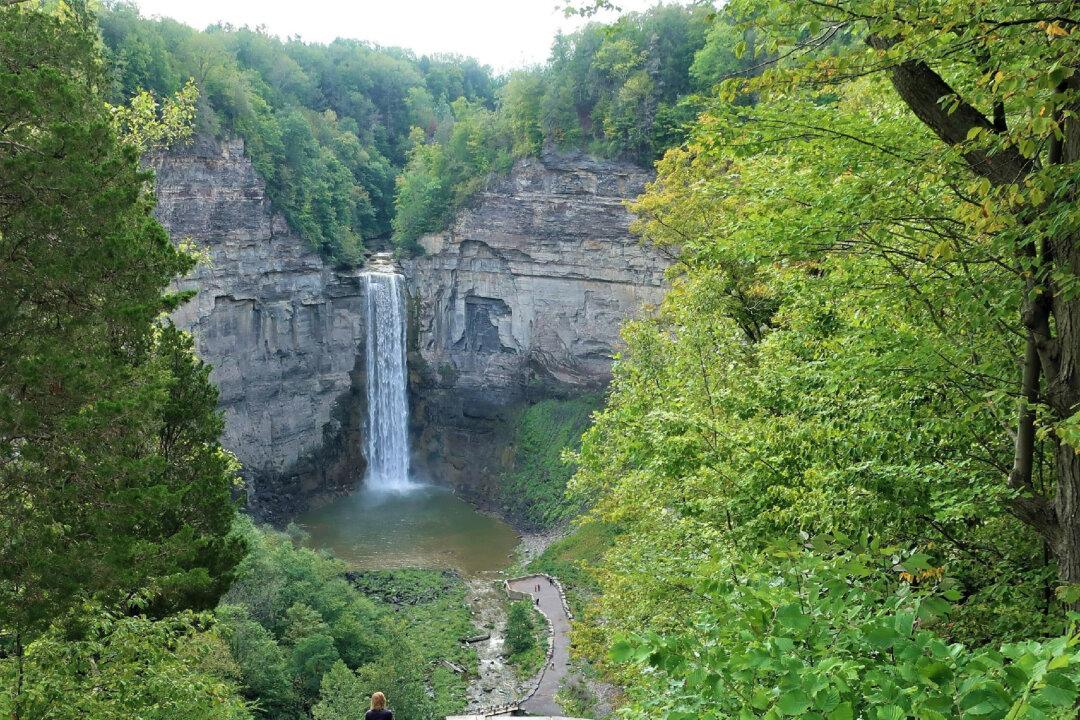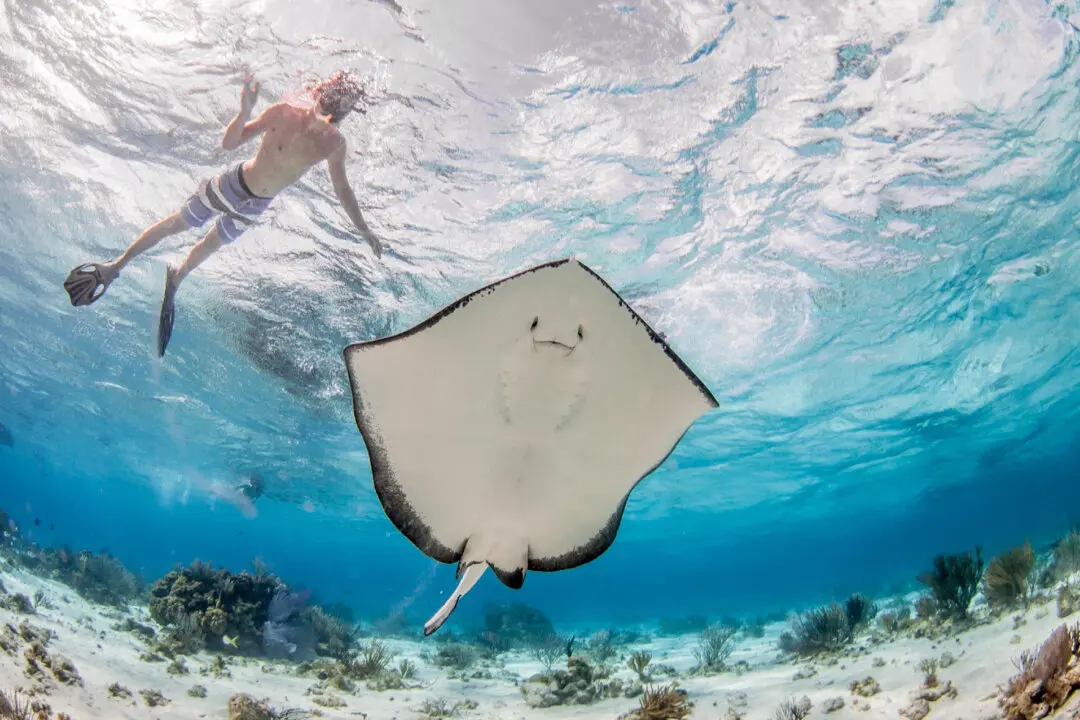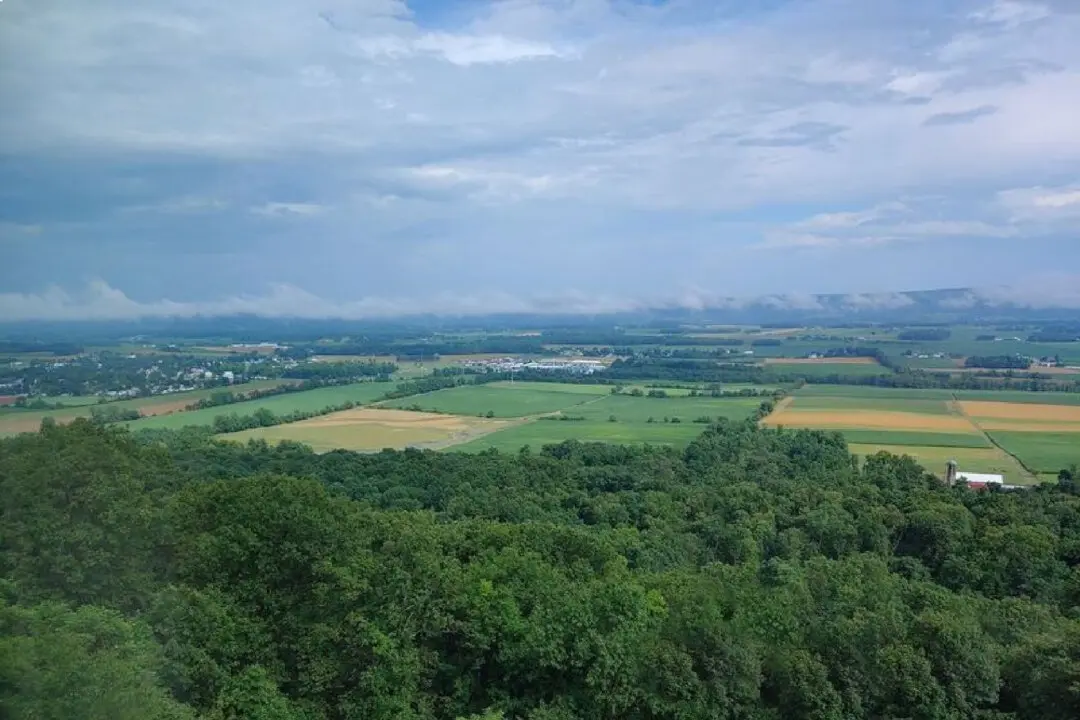“Ithaca Is Gorges,” the city’s motto says, and with 150 waterfalls within a 10-mile radius, it comes by its moniker honestly. A one-third-mile hike uphill—the Cascadilla Gorge Trail—was exhilarating not only because of the trek itself but also for the vastness and variety of six different, freely flowing, cascading waterfalls.
Tree canopies and small, fairy-tale-like cottages characterize the entire town in New York, and the fact that top-rated colleges are hidden among all the greenery is a surprising bonus. Ithaca is so compact that you can experience an unexpectedly large number of diverse activities within minutes of each other—from huge waterfalls to beautiful gardens to history museums and goat farms. And Cayuga Lake is almost always at your side.





